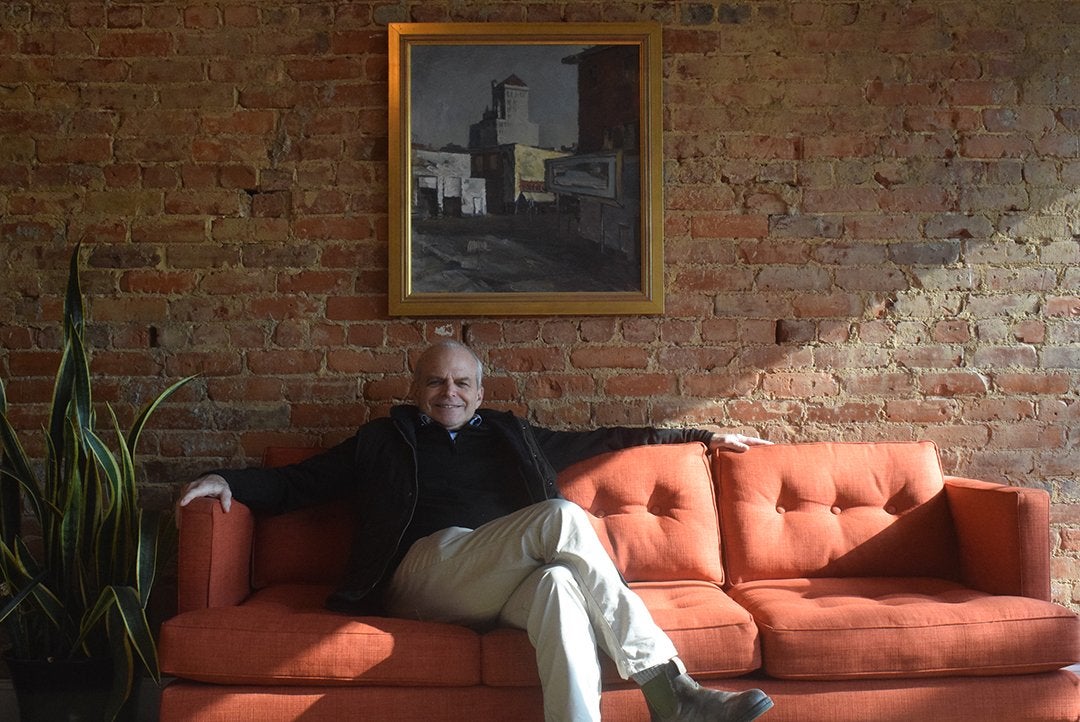The 1980s were a low point for Broad Street.
People had moved to the suburbs, and the Regency and Augusta Malls had lured businesses away from a once-thriving business district downtown. Buildings were abandoned and left to rot.
It was during that decade that Bryan Haltermann saved the first of many downtown buildings.
“It was 1986, and no one wanted them,” said Haltermann, who officially retired from Haltermann Partners on Dec. 31, 2020.
[adrotate banner=”31″]
The first Broad Street building he saved was half shoe shop, half rehearsal space for a band called Abandon.
“’Abandon’ was spray-painted on the walls, and the windows were boarded up,” he said, noting the building lived up to the band’s name.
Haltermann’s interest in Augusta’s historic buildings didn’t start when he began saving and rehabbing downtown buildings. He first started with his home – the Redmond-Hickman house in Summerville.
He purchased it in 1977, keeping the 1861 Carpenter Gothic style home from meeting the wrecking ball. His efforts earned him the first of several historic preservation awards from Historic Augusta.
The house was built for Dennis Redmond, who founded Fruitland, now the site of the Augusta National Golf Club, according to Haltermann’s 1997 book “From City to Countryside: A Guidebook to the Landmarks of Augusta, Georgia.”
The home has a steep roof, board and batten siding, a central gable plus a crowning cupola reminiscent of an Italianate style, according to the book.
While renovating his home, he became involved in the Summerville Neighborhood Association and its historic preservation efforts.
Haltermann has purchased and rehabbed between 25 and 30 buildings downtown. A lot of them have become mixed use buildings with loft apartments in the upper floors and restaurants or other businesses on the main level. Many of those apartments have been showcased on Historic Augusta’s downtown loft tour.
[adrotate banner=”22″]
There are a few buildings of which Haltermann is particularly proud.
The buildings from 1028 to 1036 Broad Street, where Soy Noodle and Art on Broad are located are among them. Longtime Augusta Mayor Charles DeVaney approached Haltermann about those buildings.
“He said ‘Bryan, I want you to by them,’” he said. “They were in terrible shape.”
They were boarded up and an eyesore. He got a façade grant from the city, and when the yellow paint was stripped from the front, a beautiful exterior shone through.
In 1997, Historic Augusta awarded him a historic preservation award for saving them.
The building at 901 Broad Street is another that he brought out of the ashes.
Currently occupied by Laziza Mediterranean Grill, it once needed a lot of work.
“It was a shell when I started,” he said. “The windows were knocked out.”
But he was able to restore it using historical photos as a guide.
While he’s officially retired, Haltermann still goes into the office regularly as the new management transitions.
Outside of that, he plans to focus his time on court tennis, also known as “real tennis,” a fast-paced indoor game which has been played for hundreds of years, according to the U.S. Court Tennis Association’s website. It was even played by Henry VIII as a young man, and he had his own tennis courts at Hampton Court Palace, a place Haltermann would like to visit. There are only 10 indoor courts in the United States; one of them is in Aiken, S.C., where Haltermann plays.
Haltermann said he’d also like to write another book.
Charmain Z. Brackett is the Features Editor for The Augusta Press. Reach her at charmain@theaugustapress.com
[adrotate banner=”44″]











